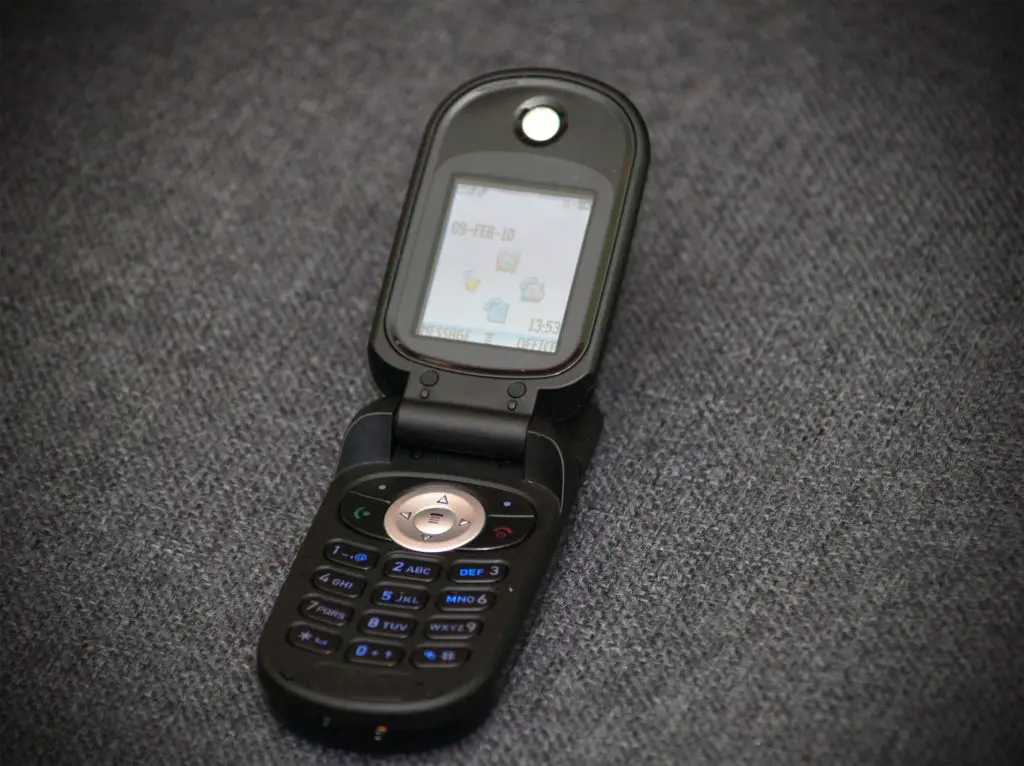If you’re looking to sign up for WhatsApp, but you would rather not use your actual phone number, here are the five best ways to do that:
Let’s look at these options and the advantages and disadvantages of each.

1. Try A Free Number From A Virtual Phone App
A straightforward first suggestion is to use a free virtual number for signing up. With a temporary phone number, you can provide the SMS verification needed to activate your WhatsApp account without giving away your actual phone number.
Disposable virtual phone numbers are generally best when you check out a service before deciding to use it long-term. Many services that provide users with a temporary phone number, like freephonenum.com or quackr.io, or smsreceivefree.com, usually provide a U.S. or Canada number. Still, some services offer numbers for other countries as well.
Be cautious since messages are visible to everyone, so the virtual number you use should not be used for sensitive transactions.
You can typically hover over a link without clicking it when browsing online. The bottom-left corner of your browser will show you what address the link would direct you to. Moreover, this might go without saying, but it’s worth emphasizing never to click or open any public links you are unsure of. Doing so could make you a target for malware or data collection.
Another issue with a disposable virtual number is that it’s challenging to monitor and keep track of. If you use a temporary phone number and something happens to your account, or if you forget your password and want to reset it, you would have to:
- Remember the number you used to sign up with
- Check that the service hasn’t deleted any messages that aren’t older than a specific date
- Make sure that you’re okay with every user of the service having access to all of your incoming messages
As a result, sometimes, using a virtual number would be better if you could gain and maintain exclusive access to that number.
We’ve written before about using burner phone apps that give you a dedicated second phone number. Apps like Burner or Hushed are great for long-term access to secondary numbers. But even those aren’t a perfect privacy solution.
Burner apps still collect information about subscribers when signing up or paying for their services. The best course of action is considering your needs for what works best for you.
If you’re just curious about a service before committing to it, publicly accessible disposable numbers are quick and easy. But suppose you’re interested in signing up for a service you intend to use. In that case, a dedicated virtual number may be better.
2. Swap Your SIM Card Temporarily
Another way to use a separate phone number to sign up for WhatsApp is by temporarily swapping your SIM card. This method, of course, requires you to have a SIM card to switch to.
You can buy a prepaid SIM card from a mobile service provider (like Verizon, AT&T, or T-Mobile) or from retailers that sell consumer electronics, like Target or Best Buy.
But there’s more than just the cost of the SIM card itself. You also have to pay the data plan cost for that second number. If you only intend to use it on a limited basis (no need for a large data plan), finding and activating the cheapest plan possible is recommended.
If you consider the data plan, there’s a recurring cost necessary to maintain ownership of the number. With these costs, why would you temporarily swap your SIM card over the previous method of using temporary disposable virtual numbers?
Switching your SIM card limits who has access to your data. It’s unavoidable that your mobile provider will collect information on you. Still, it’s worth considering swapping your SIM card, so you don’t have to register your information with burner phone apps.
However, suppose your physical SIM card is stolen. In that case, the thief could access your name, phone number, and other personal information tied to your SIM card.
Still, getting an extra SIM card for signing up for certain services is a decent way to separate your activities so that your online behavior stays as private as possible.
Using two SIM cards also provides flexibility because it allows you to:
- Have one number for business and another number for personal calls
- Delegate voice calls and texts to one network and data usage to another
- Add international data plans when traveling outside the country
You can also implement this strategy of separating your personal and business life by purchasing a burner phone.

3. Purchase A Burner Phone
We’ve written before about what a burner phone is, how purchasing a burner phone will not make you untraceable, and how to use a burner phone correctly. Let’s go through this information to consider when this option might make sense:
A burner phone is a cell phone you purchase anonymously, use for a short time, and discard. Often bought with a prepaid plan, the mobile phone is used for privacy, a dedicated purpose, or to prevent damage to a primary device.
A downside of getting a burner phone is the environmental impact. Purchasing electronics to be used for a short time and then disposing of them contributes to the problem of e-waste (or “electronic waste”). The United States Environmental Protection Agency (EPA) explains how countries ship massive amounts of e-waste to developing countries that cannot handle these materials appropriately.
The World Health Organization also warns about the soaring levels of e-waste and how it risks lives and health. Changes must be made at an organizational level to resolve an issue of this scale. However, individuals can make a difference by evaluating whether they need a new device before purchasing it, buying environmentally friendly products, and taking care to extend the life of their electronics.
Another thing to keep in mind when you buy and use a prepaid burner phone is that you don’t avoid the possibility of being trackable or identified through your device.
Neither a burner phone nor other phone numbers will cover your tracks from law enforcement if you intend to use your communications for illegal purposes. However, this shouldn’t be a significant concern for most users.
An advantage of a burner phone is that it helps separate your personal life from your other online activities. When you compartmentalize your communications, you can achieve better privacy, security, and productivity.
Use this secondary number assigned to your burner phone to register WhatsApp on your primary device. That way, you can still use your phone as you usually would, but your actual number won’t be linked to WhatsApp.
You can use your burner phone to sign up for services apart from WhatsApp and then use those services on your primary phone, so there’s no need to manage two devices actively. You could, of course, also choose to use your burner phone for certain services.
4. Subscribe To An eSIM Provider For A New Number
If you want to avoid the hassle that comes with another physical device to carry and keep track of, you could instead subscribe to an eSIM provider for a new number.
An eSIM, or embedded subscriber identification module, is – as the name implies – a dedicated chip permanently connected to the inside of your mobile phone. Since there are no physical components for you to remove or fiddle with, it’s less likely that you’ll accidentally damage or lose anything.
Suppose you’re curious about how an eSIM compares to a traditional physical SIM card. In that case, you can check out our article about it here.
So instead of purchasing a burner phone or a second physical SIM card, using an eSIM in addition to your primary SIM card allows you to add a new data plan to your phone and keep the same physical device. Unlike traditional SIM cards, which are tied to specific carriers, eSIM cards are rewritable. This means that a phone with eSIM can connect to multiple cell phone companies.
If you get an eSIM-enabled phone, you can still use a physical SIM card. Not all network operators or devices currently support eSIM, so you first need to check that both your carrier and mobile device provide eSIM support.
So if you’re looking to sign up for a service like WhatsApp and don’t want to give your actual number, subscribing to an eSIM provider is one way to do it. But if you want to separate your personal and professional life, using a dedicated smartphone for work will ensure better privacy and security for you and your company.
An eSIM may not be physically compromised, but if you’re concerned about privacy and data collection by cellular service providers, some providers allow for the anonymous purchase of data plans using cryptocurrency.
One promising solution is Silent Link, a cellular service provider that reduces the amount of information a cell phone user reveals. It provides global mobile 4G/5G Internet access with no personal information required. The service is entirely private and gathers no user data whatsoever.
Side Benefit:
Some companies are behind when it comes to securing your online accounts. They’re content with using SMS as part of their Two-Factor Authentication (2FA) or Multi-Factor Authentication (MFA) strategy. With a second number assigned to your primary smartphone, you can securely receive these 2FA codes without giving up your phone number.
When it comes to your digital activity, you should evaluate the convenience and value of a service and if using the service comes with any privacy compromises. Then you can decide if the trade-off is worth it – which leads us to our final suggestion.
5. Use A Messenger That Doesn’t Need Your Personal Number
If possible, you should consider not using WhatsApp at all. We’ve written before about alternatives to insecure MMS and SMS messaging apps and why you should consider using a secure messaging service that respects your data.
WhatsApp is not that service.
The most secure apps use end-to-end encryption, so only the intended recipients can read delivered messages. While WhatsApp advertises end-to-end encryption, this only secures your content. The metadata about your conversations is not secure or private. The company regularly hands over user metadata to third parties and governments.
The Mozilla Foundation has written about why WhatsApp is not recommended:
“WhatsApp can’t read your messages or see your calls. The flip side of this is Facebook–a company infamous for its vast and questionably ethical collection of so much data–owns WhatsApp. This means that lots of metadata, things like purchase history, location, device ID, and more–can be captured and shared with businesses advertising on WhatsApp.”
WhatsApp collects information about you to operate and provide service, like your phone number. But you can read the WhatsApp privacy policy yourself, which states that they share information with third-party services and the broader family of Facebook applications and services.
And it turns out that metadata can reveal a lot about you. The former Director of the NSA and CIA stated: “Metadata absolutely tells you everything about somebody’s life. If you have enough metadata, you don’t really need content.“
To get a more in-depth analysis of the WhatsApp privacy policy, you can read this excellent article by the Session blog and learn why metadata is everything. The non-profit organization ProPublica has also released a report explaining how WhatsApp undermines privacy protections for its over 2 billion users.
There are much better messaging services that make it a point to respect your privacy and limit the amount of data they can collect on you. Below, we’ll briefly cover the four that we like the most, with information sourced from their websites:
Session
As mentioned earlier, Session is an end-to-end encrypted messenger that minimizes sensitive metadata. It is designed for people who want absolute privacy and freedom from surveillance.
You don’t need a mobile number or an email to make an account with Session. Session does not collect geolocation data, metadata, or other data about the device or network you are using.
When using Session, your messages are sent to their destinations through a decentralized onion routing network similar to Tor (with a few key differences). This system protects user privacy by ensuring that no single server knows a message’s origin and destination.
Briar
Briar is a messaging app designed for activists, journalists, and anyone who requires safe, easy, and robust communication. Unlike traditional messaging apps, Briar doesn’t rely on a central server – messages are synchronized directly between the users’ devices.
In other words, Briar provides peer-to-peer encrypted messaging with messages stored securely on your device, not in the cloud.
The free and open-source software uses direct, encrypted connections between users to prevent surveillance and censorship.
Jami
Jami is free software for universal communication that respects the freedom and privacy of its users. Beyond providing end-to-end encrypted instant messaging, Jami offers other valuable features and functionality that help it stand out among privacy-oriented services.
You can use Jami for audio and video calls, screen sharing, and conferences. Jami is wholly peer-to-peer and doesn’t require a server for relaying data between users. The service is completely free and has no restrictions on file size, speed, bandwidth, features, number of accounts, storage, or anything else. No personal information needs to be provided when creating an account.
It can be challenging to switch to these services when most of your social network uses less secure and more privacy-invasive applications. You feel that you have to use those same applications to communicate with them.
There’s a concept called the network effect. It refers to the idea that a product or service gains additional value as more people use it. The more users a platform has, the more attractive it becomes. Platforms like WhatsApp, Facebook, Twitter, or YouTube are where users gravitate online simply because that’s what people are using.
While you may have difficulty convincing the people in your social network to switch from what they’re used to, educating others about the importance of digital privacy is worthwhile.
If you’re not already using one, start using one of the secure messaging services we covered above. To adopt these technologies and have a more privacy-aware population, you can start by being the change you want to see. You can gradually convince your friends or family to join you.
Even if people in your life claim not to care much about their privacy, you can tell them why their data is valuable and how it’s being used.
I try to educate people on just that.
Help others learn something valuable is to send them the link to our website and share any articles relevant to the technology they use in their daily lives.

